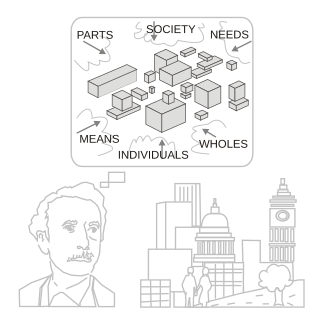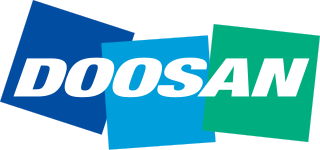Related Research Articles

Los Alamos National Laboratory is a United States Department of Energy national laboratory initially organized during World War II for the design of nuclear weapons as part of the Manhattan Project. It is a short distance northwest of Santa Fe, New Mexico, in the southwestern United States.

Lawrence Livermore National Laboratory (LLNL) is a federal research facility in Livermore, California, United States, founded by the University of California, Berkeley in 1952. Originally a branch of the Lawrence Berkeley National Laboratory, the Lawrence Livermore laboratory became autonomous in 1971 and was designated a national laboratory in 1981.

ProQuest LLC is an Ann Arbor, Michigan-based global information-content and technology company, founded in 1938 as University Microfilms by Eugene B. Power. ProQuest provides applications and products for libraries.

Moodle is a free and open-source learning management system (LMS) written in PHP and distributed under the GNU General Public License. Developed on pedagogical principles, Moodle is used for blended learning, distance education, flipped classroom and other e-learning projects in schools, universities, workplaces and other sectors.
Manganese Bronze Holdings plc (MBH) was the holding company of LTI Limited. The firm's sole business in its final years as a company was London black taxicab manufacturing through the LTI subsidiary.

Battelle Memorial Institute is a private nonprofit applied science and technology development company headquartered in Columbus, Ohio. Battelle is a charitable trust organized as a nonprofit corporation under the laws of the State of Ohio and is exempt from taxation under Section 501(c)(3) of the Internal Revenue Code because it is organized for charitable, scientific and education purposes.

Systems Science, also referred to as Systems Research, or, simply, Systems, is an interdisciplinary field concerned with understanding systems—from simple to complex—in nature, society, cognition, engineering, technology and science itself. The field is diverse, spanning the formal, natural, social, and applied sciences.
LTI can refer to:

Yehudi lights are lamps of automatically controlled brightness placed on the front and leading edges of an aircraft to raise the aircraft's luminance to the average brightness of the sky, a form of active camouflage using counter-illumination. They were designed to camouflage the aircraft by preventing it from appearing as a dark object against the sky.
The Pennsylvania Transportation Institute (PTI), officially known as The Thomas D. Larson Pennsylvania Transportation Institute or Larson Transportation Institute (LTI), was founded in 1968 in Pennsylvania, United States. It is a research unit of Penn State University's College of Engineering located in a research complex on the Penn State's University Park Campus. The institute was renamed in January 2008 in recognition of Thomas D. Larson, its first director and major benefactor.
United States Council for Automotive Research LLC (USCAR) is an umbrella organization for collaborative research that comprises Chrysler Group LLC, Ford Motor Company and General Motors. Its goal is to further strengthen the technology base of the U.S. auto industry through cooperative research and development.

Alan W Black is a Scottish computer scientist, known for his research on speech synthesis. He is a professor in the Language Technologies Institute at Carnegie Mellon University in Pittsburgh, Pennsylvania.
The Language Technologies Institute (LTI) is a research institute at Carnegie Mellon University in Pittsburgh, Pennsylvania, United States, and focuses on the area of language technologies. The institute is home to 33 faculty with the primary scholarly research of the institute focused on machine translation, speech recognition, speech synthesis, information retrieval, parsing, information extraction, and multimodal machine learning. Until 1996, the institute existed as the Center for Machine Translation, which was established in 1986. Subsequently, from 1996 onwards, it started awarding degrees, and the name was changed to The Language Technologies Institute. The institute was founded by Professor Jaime Carbonell, who served as director until his death in February 2020. He is followed by Jamie Callan as the current director.

Jaime Guillermo Carbonell was a computer scientist who made seminal contributions to the development of natural language processing tools and technologies. His extensive research in machine translation resulted in the development of several state-of-the-art language translation and artificial intelligence systems. He earned his B.S. degrees in Physics and in Mathematics from MIT in 1975 and did his Ph.D. under Dr. Roger Schank at Yale University in 1979. He joined Carnegie Mellon University as an assistant professor of computer science in 1979 and lived in Pittsburgh from then. He was affiliated with the Language Technologies Institute, Computer Science Department, Machine Learning Department, and Computational Biology Department at Carnegie Mellon.
David Nagel is an American manager. He held executive positions in a wide variety of technology companies and organizations.

Doosan Babcock Ltd is part of Doosan Power Systems S.A., a subsidiary of Doosan Heavy Industries & Construction. It is a power sector OEM, construction, upgrade, and after-market services company that offers specialist services and technologies to the fossil-fired power generation, nuclear power generation, and oil, gas, and petrochemical industries.

Electronic engineering is an electrical engineering discipline which utilizes nonlinear and active electrical components to design electronic circuits, devices, integrated circuits and their systems. The discipline typically also designs passive electrical components, usually based on printed circuit boards.

Larsen & Toubro Infotech Limited (LTI) is an Indian global Information technology solutions and services company based in Mumbai, India. In 2017, NASSCOM ranked LTI as the sixth-largest Indian IT services company in terms of export revenues. It was among the top 15 IT service providers globally in 2017, according to the Everest Group's PEAK Matrix for IT service providers.
Lessac Technologies, Inc. (LTI) is an American firm which develops voice synthesis software, licenses technology and sells synthesized novels as MP3 files. The firm currently has seven patents granted and three more pending for its automated methods of converting digital text into human-sounding speech, more accurately recognizing human speech and outputting the text representing the words and phrases of said speech, along with recognizing the speaker’s emotional state.
Photopia Optical Design Software (Photopia) is a commercial optical engineering ray-tracing software program for the design and analysis of non-imaging optical systems. Photopia is written and distributed by LTI Optics, LLC and was first released in 1996. Photopia's main market is the architectural lighting industry but it is also used in the automotive, medical, industrial, signal and consumer products industries. Photopia includes a full library of lamps including the latest high brightness LEDs as well as a library of material BSDF data.